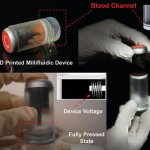
News • Millifluidic nanogenerator
Blood-powered lab-on-a-chip to enhance disease monitoring
Researchers are proposing a new device that uses blood to generate electricity and measure its conductivity, opening doors to medical care in any location.

Researchers are proposing a new device that uses blood to generate electricity and measure its conductivity, opening doors to medical care in any location.
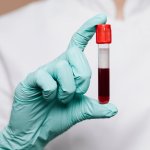
Tackling standardization of molecular pathology at a European level remains a major challenge, according to speakers at the 35th European Congress of Pathology in Dublin. One leading expert warned it would be ‘very difficult’ to achieve, though the session also heard about potential solutions such as educational steps to consistently train future pathologists at a high and consistent level.

Acute myeloid leukaemia (AML) is a common type of blood cancer in childhood and can be diagnosed within a few months of life. New research shows that its origins can be traced back to before birth.
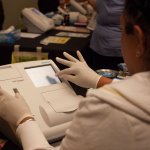
When point-of-care testing (POCT) models for diagnosing infectious disease are effective, the quality of pathology results can be equivalent to laboratory tests, new research shows.

Embark on a journey of unparalleled efficiency and precision with Sakura Finetek Europe's newest innovation in identification technology: the Tissue-Tek xPrint® LP Laser Cassette Printer.
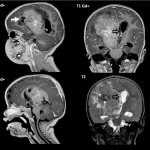
A new study used new molecular analyses to unravel the biological mechanisms of pediatric brain tumors and refine their classification.

A research group established a microfluidic control technology that can be applied to small blood testing devices and consequently developed a novel integrated immunoassay device.

Tissue biopsy and liquid biopsy can increasingly be used as complementary or alternative approaches, with advantages and limitations to each. While speakers at the recent 35th European Congress of Pathology in Dublin were quick to highlight that liquid biopsy was not about to replace tissue biopsy, the focus looked at the benefits and challenges of each through the lens of four expert speakers.

A new study explores the phenomenon of heteroresistance in bacteria, which is a key driver of antibiotic resistance. Two new discoveries could impact the development of future AMR strategies.
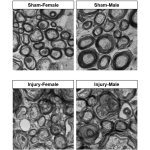
Structural differences in male and female brains might explain why women are more prone to concussions and experience longer recovery from the injury than men, according to a new preclinical study.
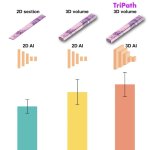
Adding a new dimension to pathology: Researchers explore new, deep learning models that can use 3D pathology datasets to make clinical outcome predictions for curated prostate cancer specimens.
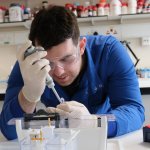
A new approach to vaccine development could produce vaccines before the disease-causing pathogen – such as a new variant of the coronavirus Sars-CoV-2 – even emerges.
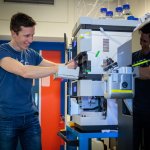
New research challenges assumptions about the origin of rheumatoid arthritis, which are probably too simple. The findings may point towards improved diagnostics of this painful autoimmune disease.

Blood cancer cells can remain in the blood of AML patients, even after chemotherapy seemed successful. Testing for these residuals before blood cell donation is a vital precaution, a new study finds.
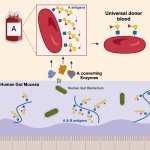
Donor blood is a scarce and valuable resource. Researchers aim to mitigrate this by using enzymes to remove specific sugars that make up the A and B antigens in the human ABO blood groups.

Could the 'gene scissors' CRISPR be used to make resistant bacteria susceptible to first-line antibiotics again? According to new reseach, yes – but the experts also point out serious caveats.
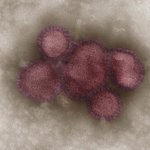
The world has hardly processed Covid-19, so the thought of another pandemic is far from pleasant. Yet, infectious disease experts have picked the most likely candidate in a new survey.

US researchers have developed and validated a new urine-based test for prostate cancer, which was shown to meaningfully reduce unnecessary prostate biopsies while providing highly accurate detection.
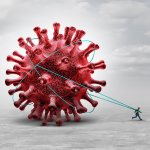
New research provides cause for optimism that long Covid can resolve over time. Following people from the first wave of Covid-19, it monitored the longevity of immune abnormalities after an infection.
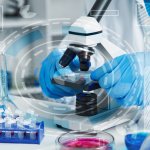
A study highlights performance differences in computational pathology systems, depending on demographic profiles associated with histology images. The researchers also propose a way to fix this bias.

Beckman Coulter Diagnostics announced ahead of the ESCMID Global congress (formerly ECCMID) that it has extended the menu of DxI 9000 Immunoassay Analyzer* assays.
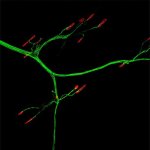
Takotsubo cardiomyopathy (‘broken heart syndrome’) is a known complication of Guillain-Barré, but not much is known about the association between the two. New research aims to change this.
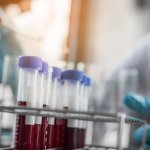
Findings from the largest UK study of patients hospitalised with Sars-CoV-2 infection show that long Covid leads to ongoing inflammation which can be detected in the blood.
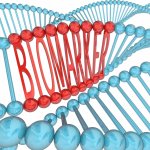
Digital pathology can be used to great effect in pharmaceutical research: it can accelerate analyses, give deeper insights into cellular mechanisms, and enable better understanding of their role into clinical development. This potentially offers clearer predictions on how patients may respond to treatment and lead to personalized therapies.

How often should men get checked for their level of PSA, a marker for prostate cancer? A German study involving over 12,500 men shows that a five-year interval between tests is safe.